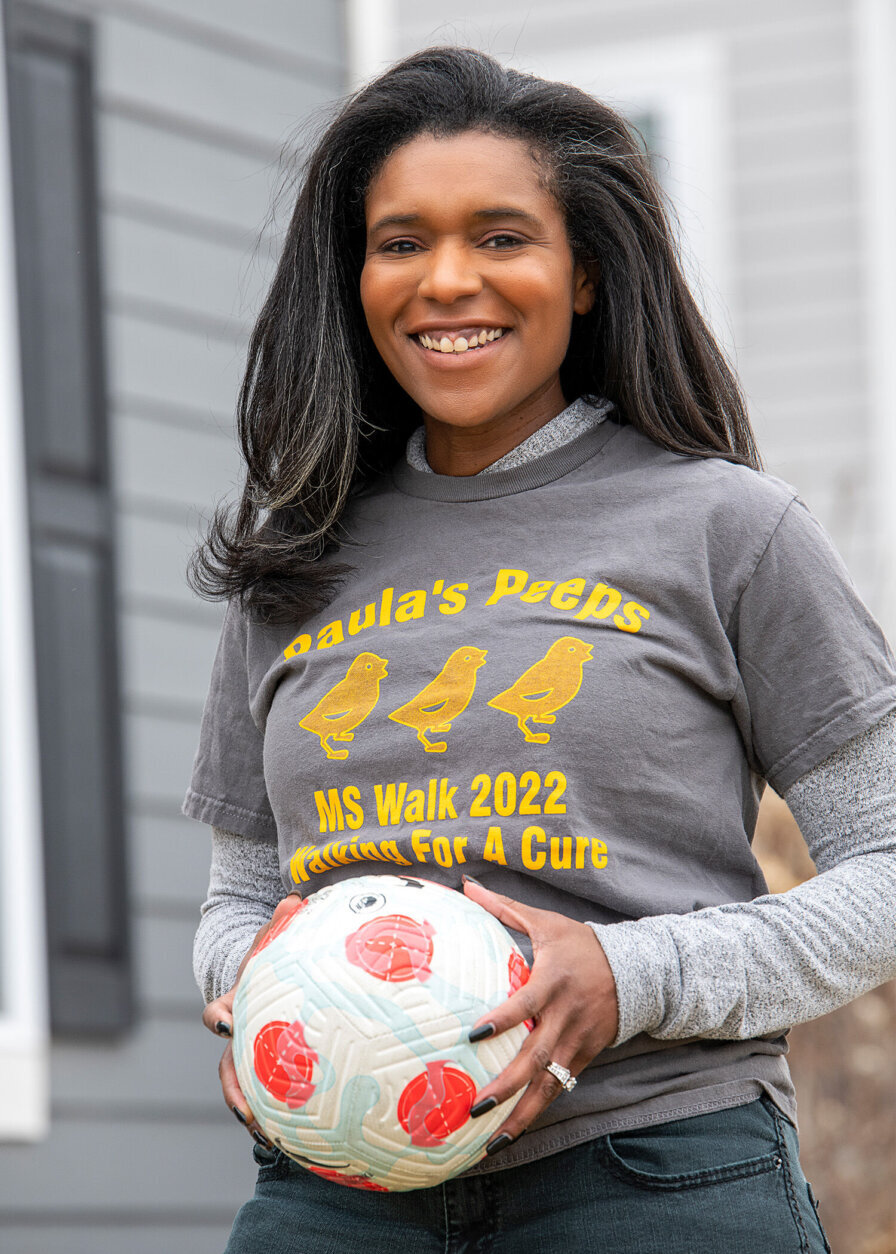





Multiple sclerosis is at least three times more common in women than men, according to the National Multiple Sclerosis Society. Now, rates of the incurable disease are on the rise among Black women, according to The Ohio State University Wexner Medical Center.
Paula Cole recalls when the first symptoms of her MS appeared. She was a 21-year-old soccer player at Ohio State University and the symptoms were baffling.
“One of my first symptoms, unbeknownst to me that it was a symptom, was I would walk into a room and the lights were overwhelming,” she told WTOP.
Another symptom: drop foot.
“I would be playing soccer, and I would almost trip over my foot,” she said. “I couldn’t handle the ball as I used to. I had no idea what was going on. I thought I was just tired or needed to work harder.”
Cole’s parents insisted on her seeing a doctor when she couldn’t get out of bed during the Thanksgiving holiday. Shortly after that, doctors diagnosed her with MS — a condition where the body’s immune system attacks optic nerves, the brain and spinal cord.
For the next 20 years, she used exercise and diet to manage symptoms, which included the sensation of pins and needles in her legs.
Then in 2021, Cole, now a married mom of two, decided to visit a doctor. But she specifically wanted a Black doctor.
“Representation matters,” Cole said. “There was a trust that was instant.”
Her neurologist at The Ohio State University Wexner Medical Center, Dr. Tirisham Gyang, prescribed medication to slow the disease’s progress.
“MS has historically been thought to affect white individuals, therefore there is a lack of awareness about the disease in other patient populations,” Gyang said.
As a result, there has been a lack of recognition and under-diagnosis of MS in Black patients, she explained.
Many doctors are calling for an increase in the number of Black people represented in clinical trials.
“We really need more diverse populations in clinical trials so we can understand the differences we see in the uptick of MS,” Gyang said.
Cole, who now advocates for other MS patients, said she’s glad she sought medical attention for MS decades after being diagnosed. She said that Black women often put off seeking medical attention when they start experiencing symptoms.
“They should know that they need to be their own advocates,” she said. “Seek doctors who look like you. If you can be a part of research, be a part of research. It allows us a future that is equal.”
Get breaking news and daily headlines delivered to your email inbox by signing up here.
© 2024 WTOP. All Rights Reserved. This website is not intended for users located within the European Economic Area.








